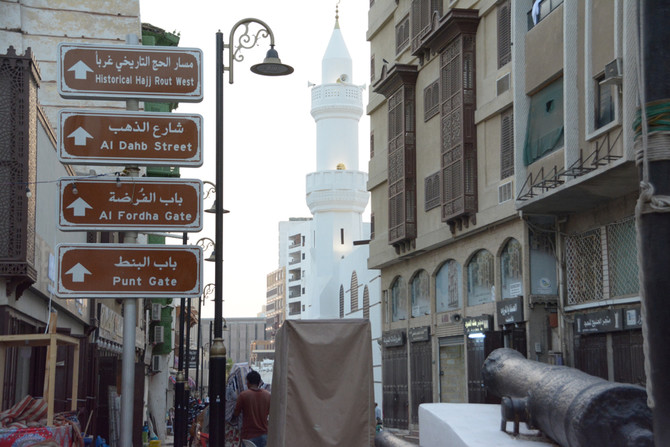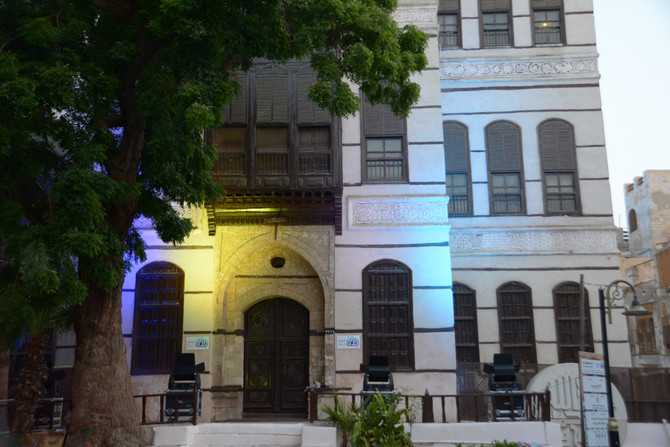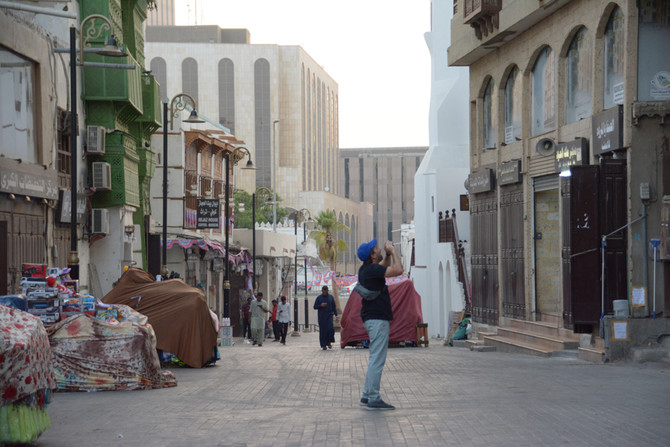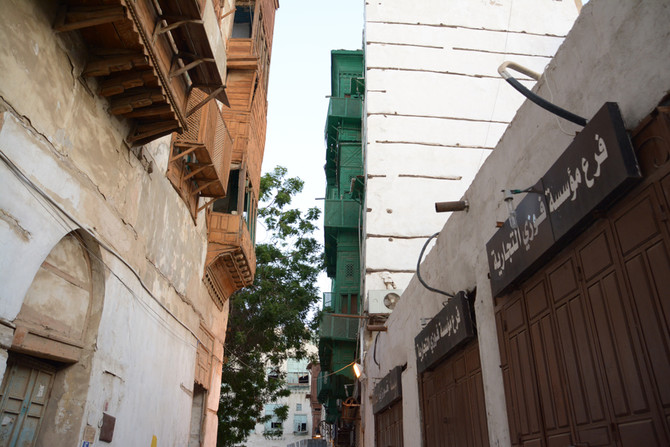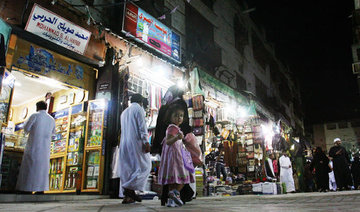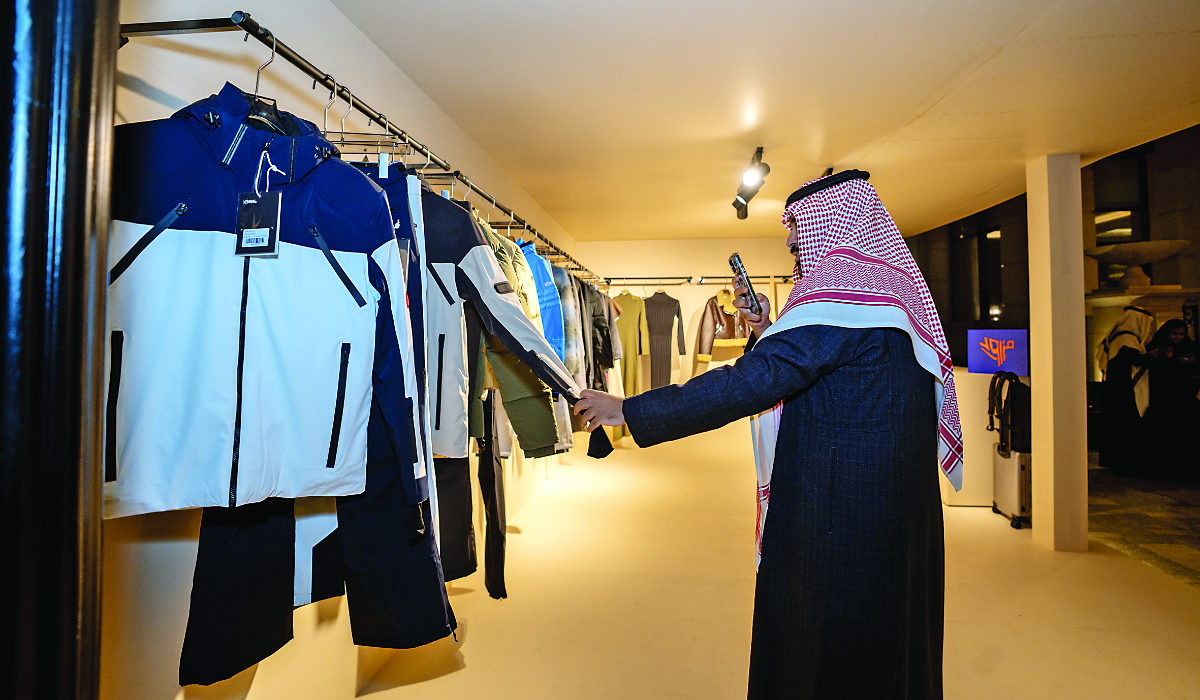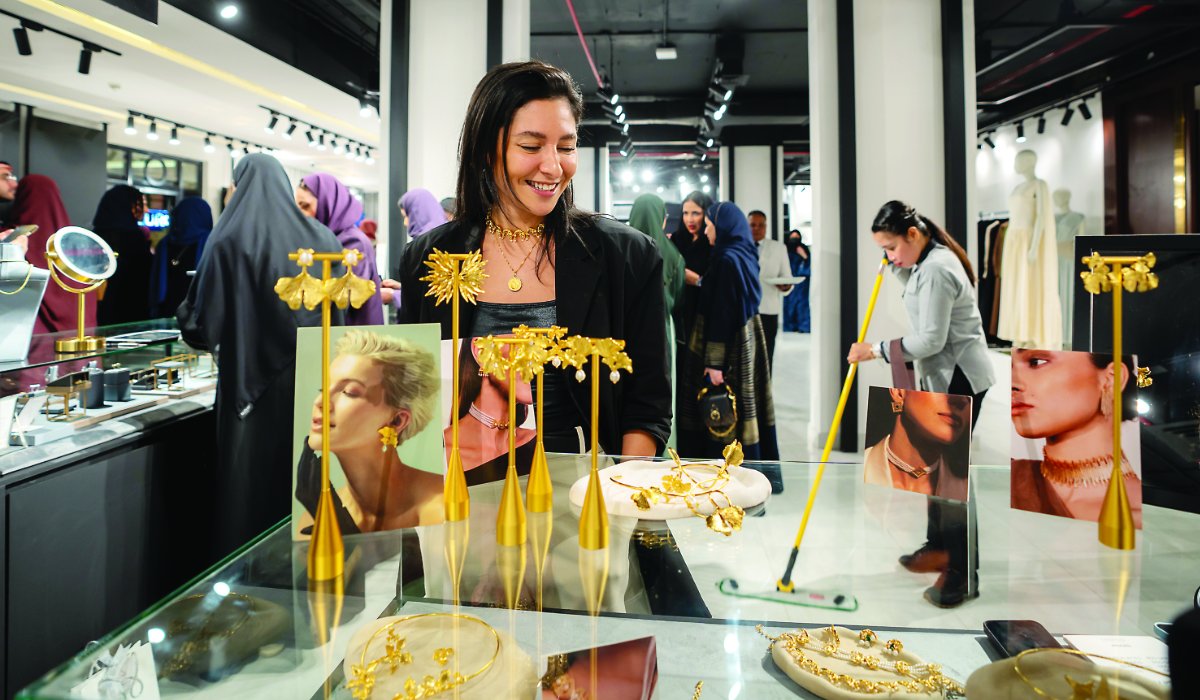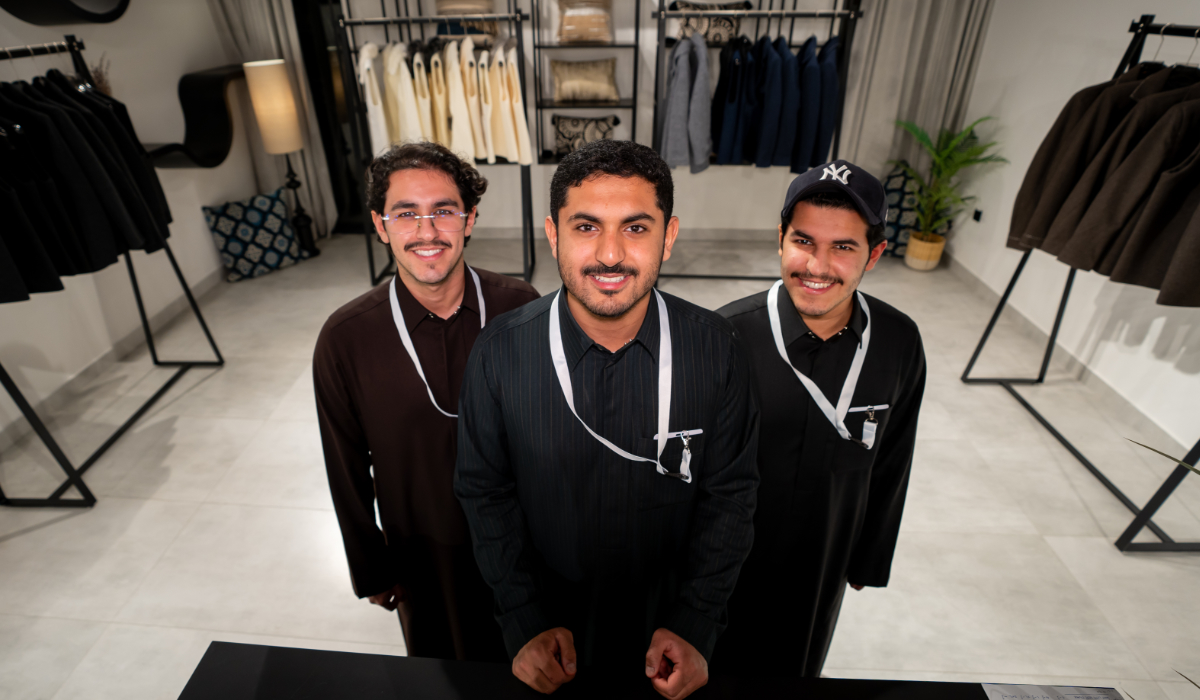JEDDAH: Old Jeddah (Al-Balad) is one of the most popular historic landmarks of the city. Locals and non-locals enjoy walking down the old alleys and admiring the remnants of old Hejaz, making it a favorite tourist attraction in the city.
According to Saudi Commission for Tourism and National Heritage (SCTH) sources, its existence may date back to the era before Islam. Some of the buildings are 400 years old, and Old Jeddah is listed as a UNESCO World Heritage Site.
The turning point in the history of Jeddah was during the reign of Caliph Othman bin Affan, in the year 26H/647CE, when he ordered it to be the sea port of the holy city of Makkah, facilitating regional commerce as well as receiving Hajj and Umrah pilgrims.
 Old Jeddah includes a number of monuments and heritage buildings such as the Old Jeddah wall and its historical open squares such as Al-Mazloom, Al-Sham, Al-Yemen and Al-Bahr Haras.
Old Jeddah includes a number of monuments and heritage buildings such as the Old Jeddah wall and its historical open squares such as Al-Mazloom, Al-Sham, Al-Yemen and Al-Bahr Haras.
The area is also home to historic mosques such as Othman bin Affan Mosque, Al-Shafe’i Mosque, Al-Basha Mosque, Akkash Mosque, Al-Mi’maar Mosque and Al-Hanafi Mosque.
It is no surprise that the historic area is the ideal destination to celebrate the holy month of Ramadan in.
“Ramadan and the historic buildings together create quite an atmosphere,” Dr. Mohammed Basha told Arab News.
It takes Jeddawis for a walk down memory lane. “Ramadan in Al-Balad reminds me of my childhood. It is a must that I visit Al-Balad in Ramadan so that I can relive those memories,” Waleed Shalabi said.
According to Jeddawis, the historic area is a timeless place that all ages can enjoy.
“For us, Ramadan in Old Jeddah, we lived a part of it and others before us have lived it, it is something we will pass down to future generations, the beautiful atmosphere of Ramadan in Historic Jeddah,” Nawal Aburehla told Arab News.
The owner of the cultural and heritage cafe in Old Jeddah “Café Magad” praised the historic area for its liveliness.
“Generally, Old Jeddah is very special in Ramadan,” Mazen Al-Saqaf said.
“First, the festivals that revive the historic area and naturally people of the city enjoy visiting Old Jeddah in Ramadan. Locals, non-locals, tourists, everyone visits Old Jeddah in Ramadan because of its liveliness.”
Many locals treasure their memories in Old Jeddah. “It is different — it reminds you of the old days. It is not city-like, it matches the stories that your grandparents tell you, you can see it here live. The stories come true here,” Fouad Hakeem said.
“The atmosphere here in Al-Balad is different from the atmosphere north of the city — here, you experience the past. Here, we still feel so young, when I gather with my friends here I do not feel older. I enjoy my time with my friends like the good old days. It takes me back,” Hassnaa Abdulwasi said.
Some say communication and social interactions are more human.
“In Old Jeddah specifically, you genuinely experience Ramadan,” Zakia Al-Qurashi told Arab News.
“Communication between people, the street market stands, when you walk through the alleys people greet each other and wish each other a happy Ramadan. It is unlike the type of communication outside the historic area, where communication is more digital. Here, people still communicate and interact with each other.”
THE LIST
Traditional markets, souks, to visit when in Balad:
• Souk Al-Nada is in the historic downtown area and is the most popular traditional market in Jeddah. It was established more than 150 years ago, and what distinguishes it from the rest is that it offers all sorts of traditional dishes and fresh ingredients and commodities.
• Souk Al-Alawi is located in the heart of historic Jeddah and it connects the port with the Gate to Makkah, acting as a gathering spot for many old merchants. What attracts visitors to this souk is their abundance of house appliances, clothing, grains and spices.
• Souk Al-Khaskia is an important landmark in Jeddah and is considerably newer compared to other souks. It is not only frequented for shopping. Pilgrims and Jeddah citizens and residents visit it just for fun.
• Souk Al-Jami is an extension of the Bedouin market and it gets its name from the historic Imam Shafi’i Mosque in its midst in the Mathloum district. The souk specializes in fabrics in plentiful quantities, colors and numerous patterns of embroidery.
• Souk Haraj is one of the largest markets in the world with a space of one third of a million square meters, occupying more than 12,000 shops, 26 shopping centers and 10,000 stalls.
• Bedouin Souk is an important historical market and one of the most popular in Jeddah. It is located at the gate of Makkah and hosts many goods at attractive prices. It also contains local restaurants with traditional food as well as amusement parks for children.
• Souk Al-Kandarah is one of the liveliest markets in the historical city because of its traditional atmosphere. It also has a highly active and competitive gold market, specifically during the seasons of Ramadan, Hajj and Umrah.
• Souk Bab Shareef is located in the southern parts of the historic area.
• Bab Shareef is one of the eight gates of Old Jeddah’s wall. The market itself is more than a hundred years old and it is famous for its Saudi, Yemeni and Sudanese merchants.
• Souk Qabel is another ancient but popular market in Jeddah and is considered vital to some visitors and locals due to its provision of all necessities, from clothing, shoes and fabrics to currency exchange shops.
• Old Jeddah, Al-Balad is famous for its architecture, dominated by brick-made and wooden buildings, carrying the lives of olden Arabs and offering delicious traditional dishes and local produce.
• The market is known for its plentiful stores and stalls, packed with fabrics of all kinds and colors.


